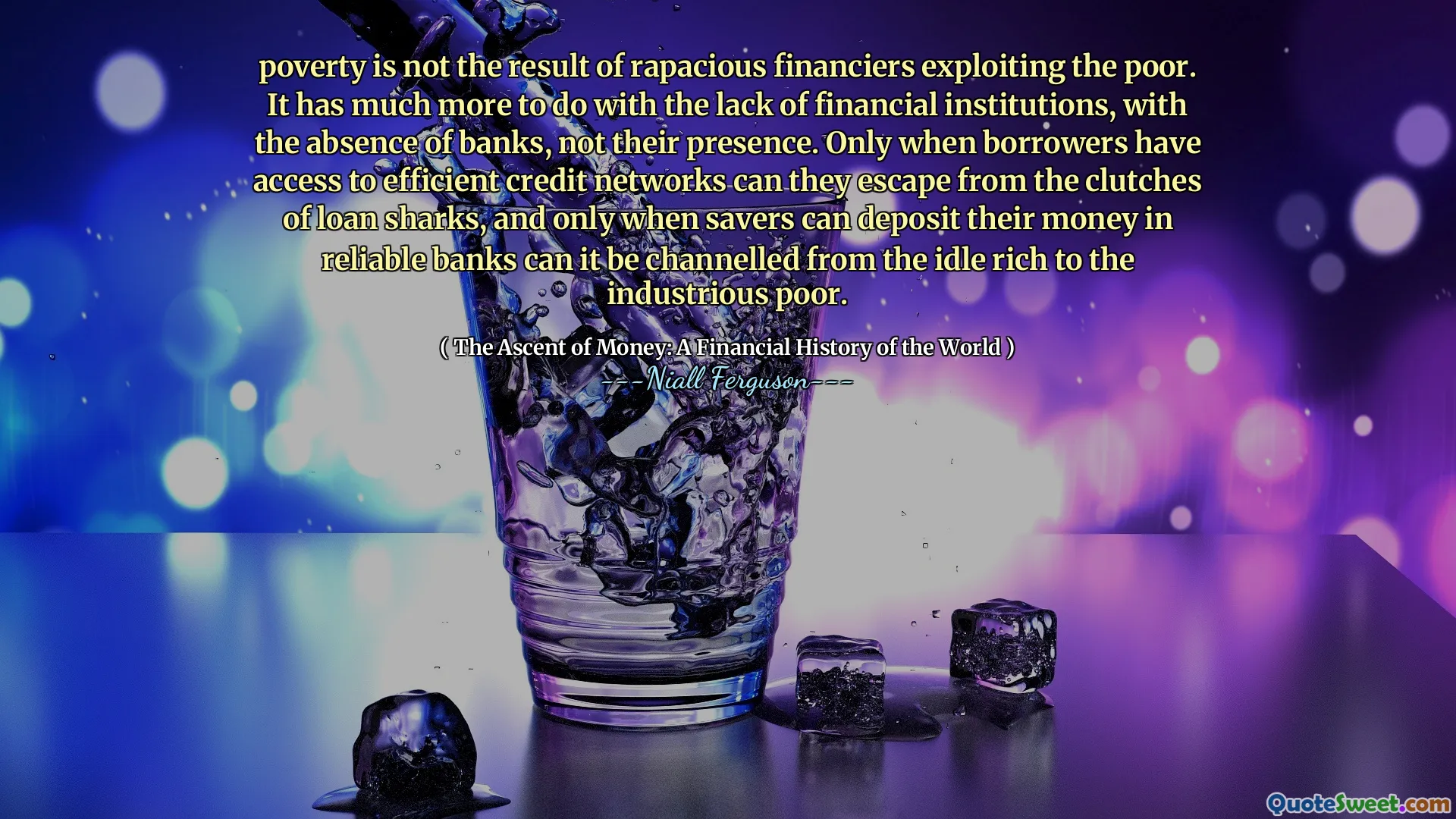
poverty is not the result of rapacious financiers exploiting the poor. It has much more to do with the lack of financial institutions, with the absence of banks, not their presence. Only when borrowers have access to efficient credit networks can they escape from the clutches of loan sharks, and only when savers can deposit their money in reliable banks can it be channelled from the idle rich to the industrious poor.
Poverty is often misattributed to the greed of financiers who exploit the vulnerable. In reality, it stems from a lack of financial infrastructure, such as reliable banking services. Without access to banks, the poor remain trapped in a cycle of dependency on loan sharks, who charge exorbitant interest rates, making it difficult for them to improve their financial situations. This systemic absence of trustworthy financial institutions exacerbates their plight.
For communities to rise above poverty, establishing efficient credit networks is crucial. When borrowers can access fair loans and savers have a safe place to deposit their earnings, financial resources can be effectively redistributed. This shift allows money to move from wealthier individuals who may not be using it productively to those who are eager to invest in their livelihoods. Thus, enhancing the financial landscape is essential for empowering the poor and fostering economic growth.











